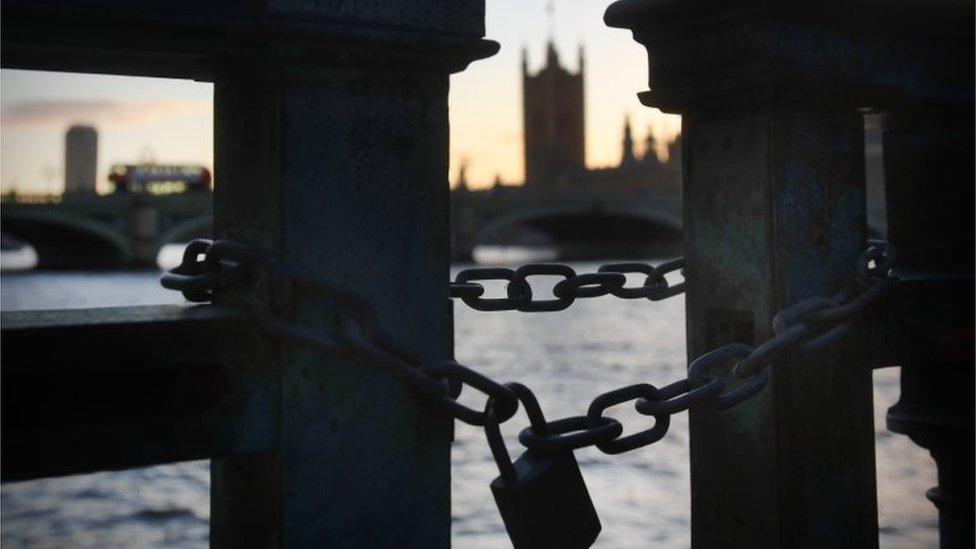MPs suspended for bullying or sexual harassment could face by-elections
- Published

MPs suspended for bullying or sexual harassment can now face a recall petition - a move that could lead to a by-election - under a rule change approved in the House of Commons.
It follows the case of MP Rob Roberts, who did not face a recall petition despite being suspended from Parliament for sexual misconduct.
MPs voted to close the loophole.
But it will not apply retrospectively to Mr Roberts - something Labour argued should be the case.
In May, Delyn MP Mr Roberts was suspended for six weeks after Parliament's Independent Expert Panel (IEP) found he had sexually harassed a member of his staff.
He apologised and said he would "continue to serve" his constituency, and has since spoken in debates in the House of Commons.
However, his suspension did not lead to a recall petition - a process where voters can potentially trigger an election to try and remove them.
This was because it was handed down by the independent panel, a body set up last year to examine sexual harassment and bullying cases.
Under the original law, recall petitions are only automatically triggered if an MP is suspended for at least 10 days by a different body, the Commons Standards Committee.
The committee used to examine sexual harassment and bullying cases, before they were transferred to the independent panel.
'Problematic'
The Leader of the House of Commons, Jacob Rees-Mogg, warned that Labour's amendment to apply the change retrospectively would set "a very problematic precedent".
He argued it would "undermine" the independence of the panel and would amount to making a "political decision" about an individual case.
He said that the panel could have recommended expelling Mr Roberts, but chose not to take that option.
Labour's shadow leader of the House of Commons Thangam Debbonaire acknowledged that having to introduce "retrospective rule changes is an extremely unfortunate situation to be in".
But she defended Labour's amendment arguing: "It cannot be right that simply because of the timings of a complaint... his constituents will not have the opportunity to have a recall or a by-election should they choose."
SNP MP Pete Wishart spoke in favour of the amendment saying there was "almost a sense someone has got away with it".
He also said they should look at why MPs under investigation for "the most serious of cases" were still allowed to access the parliamentary estate - something unions have been calling for.
'Vulnerable'
Shadow safeguarding minister Jess Phillips argued that not voting for the amendment would harm constituents in Delyn because: "If you are vulnerable you are not going to come forward to someone who has used vulnerabilities for their own ends."
But her Labour colleague, and chair of Parliament's Standards Committee, MP Chris Bryant, said he would not back Labour's amendment to make the rule changes retrospective because the panel could have expelled Rob Roberts.
But he said "it presents a very difficult example for the House that someone has been found to have behaved inappropriately... chooses to continue in the House" and said the MP should resign.
Conservative Sir Edward Leigh also opposed the amendment arguing that people should be "punished according to the law at the time you commit your offence".
Labour's amendment was defeated by 297 votes to 213, the rule change itself was then agreed to without a full vote.
Related topics
- Published14 October 2021

- Published8 September 2021

- Published20 July 2021
